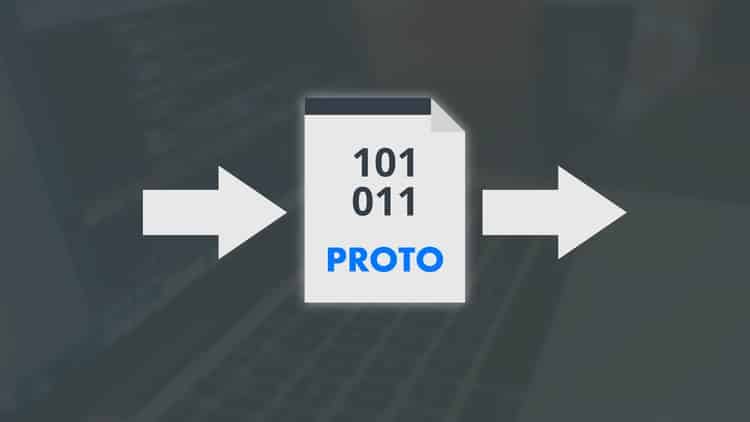- Регистрация
- 27 Авг 2018
- Сообщения
- 38,745
- Реакции
- 597,549
- Тема Автор Вы автор данного материала? |
- #1

- Write simple and complex .proto files
- Practice Exercises to Confirm the Learnings
- Leverage Imports and Packages appropriately
- Generate Code using `protoc` in any language
- Code in Java with Protocol Buffers
- Understand how Data Evolution works for Protobuf
- Learn about advanced Protocol Buffers concepts
- Some programming background (Java, Python or Go for example)
- Previous experience with other formats such as XML or JSON is preferred
Protocol Buffers (protobuf) is a fundamental data serialization format that every Data Engineer should know about. It is leveraged by many top tech companies such as Google and enables micro-services to transfer data in a format that is safe and efficient.
In this course, we are going to explore in depth, with hands-on lectures, all the aspects of Protocol Buffers 3.
In just a few hours, you will know everything you need to know to create simple and complex .proto files, and write code in your Favourite Programming language such as Java, Python and Go. Protocol Buffers generates all the boilerplate code for you!
Stop using XML and JSON and start using a Data Format that will allow you to create the most efficient APIs.
Complete Guide to Protocol Buffers 3 is the best way to get a great overview of all the possibilities offered by Protocol Buffers
> Write simple and complex .proto files
> Practice Exercises to Confirm the learnings
> Leverage Imports and Packages appropriately
> Generate Code using `protoc`
> Code in Java with Protocol Buffers
> Learn about advanced Protocol Buffers concepts
Note: This course assumes you have some knowledge about Programming and JSON / XML
Instructor
Stephane Maarek is the instructor of this course. He is the author of highly successful courses such as Apache Kafka Series and AWS Series. He is passionate about micro-services and data. He has already taught to 40000+ students and received 12000+ reviews.
He shares all his Data knowledge on the platform, taking the time to explain every concept and provide students with both theoretical and practical dimensions. You are in good hands!
Section outline:
- Protocol Buffers Course Introduction: Get an understand of the course objectives, how the course is structured, download the course code and get ready!
- Protocol Buffers Basics I: Learn how to create your first messages using Scalar Types. Practice with 5 exercises
- Protocol Buffers Basics II: Learn how to create complex messages, and organise your code in different files and packages. Practice with 4 exercises
- Setting up Protoc Compiler: Setup the protoc compiler and learn how to generate code in any language
- Java Programming with Protocol Buffers: Write your Protocol Buffers Data in Java
- Golang Programming with Protocol Buffers: Write your Protocol Buffers Data in Golang
- Data Evolution with Protobuf: Evolve your protocol buffers file in a safe way in order to add or remove fields without breaking previous code
- Protocol Buffers Advanced: Advanced Types in Protocol Buffers as well as Options, Integer Types, and an introduction to RPC Services with gRPC
✔ Lifetime Access to All Future Updates
✔ A responsive instructor in the Q&A Section
✔ Links to interesting articles, and lots of good code to base your next template onto
✔ Udemy Certificate of Completion Ready for Download
✔ A 30 Day "No Questions Asked" Money Back Guarantee!
This is the course that could change your data skills.
Learning and getting hands-on on Protocol Buffers helps you to enhance your career opportunities and helps to boost your income. An investment in your career is an investment in yourself. Don’t procrastinate. There is no time like the present to take charge of your career. Take your career to the next level by learning Protocol Buffers today!
Take the course now, completely risk free !
Who this course is for
- Developers who want to understand how to write .proto files and write code to create Protocol Buffer data
- Architects who want to understand how Protocol Buffers works and be useful for their solution archicture
DOWNLOAD:



